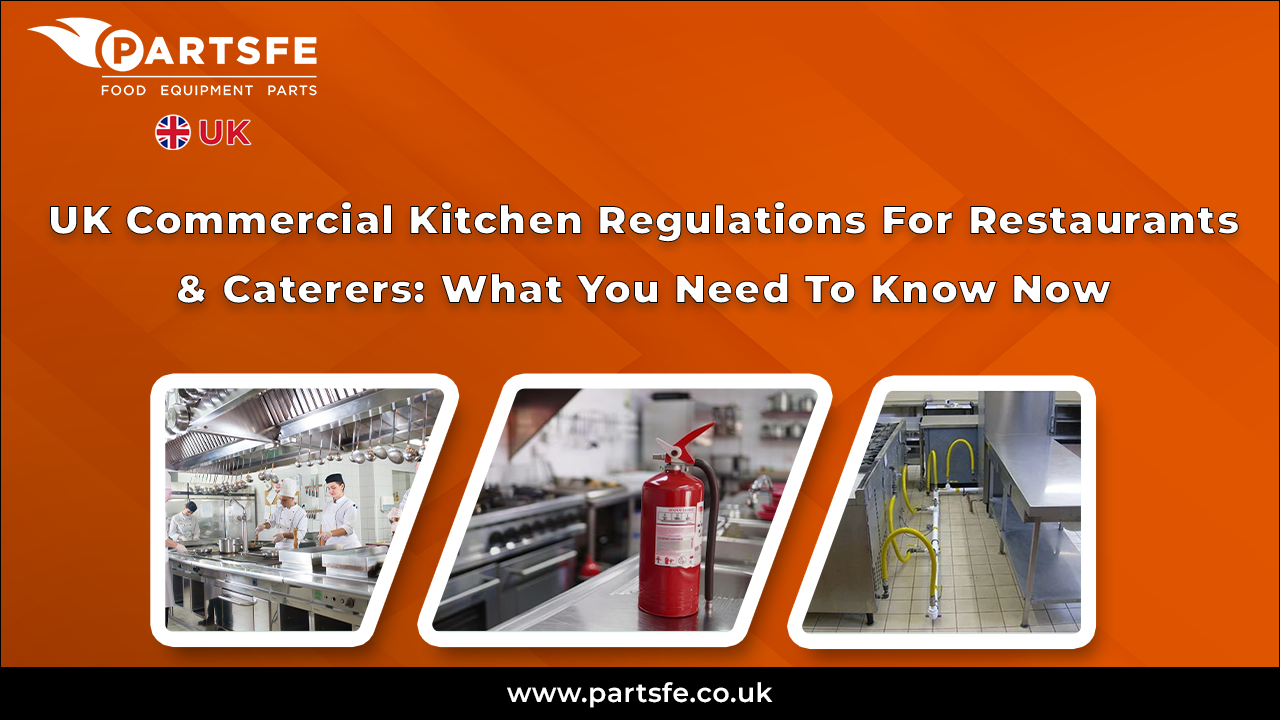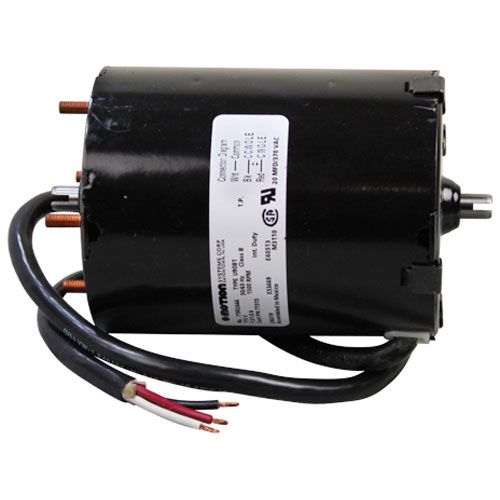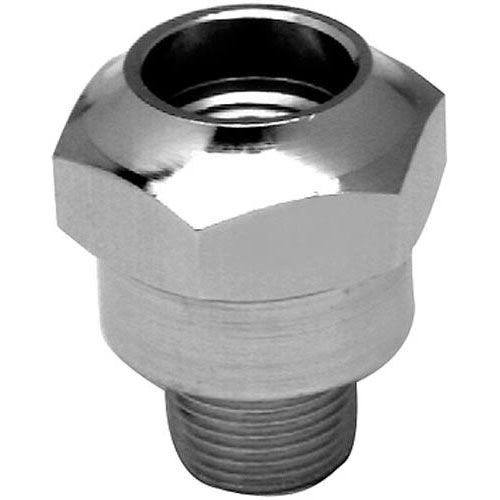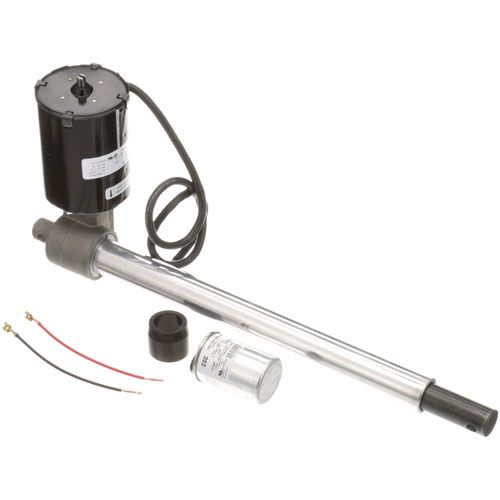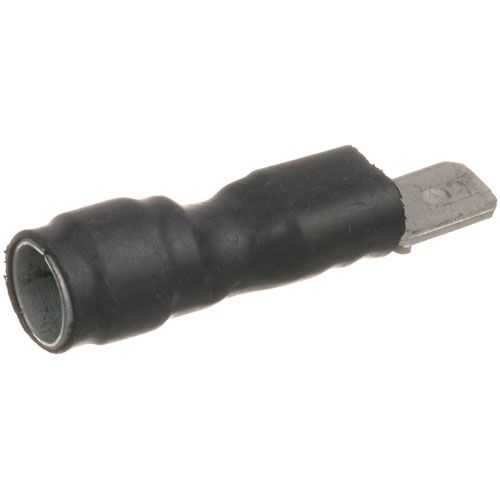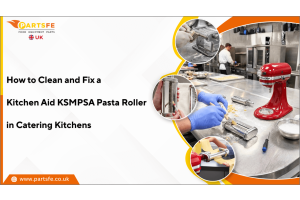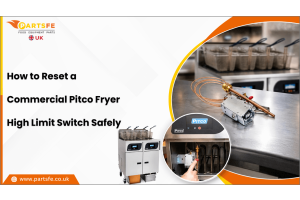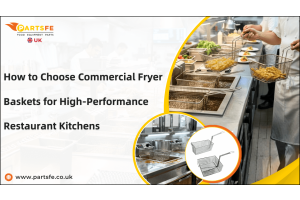UK Commercial Kitchen Regulations For Restaurants & Caterers: What You Need To Know Now
In 2025, restaurants and caterers will have to abide by UK commercial kitchen regulations more than ever. A formula oversees the food industry such that risks to public health and safety are substantially reduced. Adhering to these regulations will make our customers and staff safe and prevent businesses from facing severe repercussions like hefty fines, temporary closures, and even irreparable damage to their reputation. Understanding and compliance with these regulations are essential for food service establishments to survive in the competitive market. Noncompliance could result in inspections where violations in the form of fines are uncovered and possible shuttering of the business. The rules are not just for compliance but also about creating a safe and responsible culture in the industry.
| Table of Contents: Why Following UK Commercial Kitchen Rules is Crucial Essential UK Kitchen Regulations for 2025 Top Compliance Mistakes and How to Avoid Them |
Why Following UK Commercial Kitchen Rules is Crucial
Compliance is more than just a legal requirement. It's a critical element in running a successful food business. From safeguarding public health to preserving a brand’s reputation, following the rules ensures smooth operations and long-term sustainability.
Health & safety: Ensuring health and safety standards is paramount. Restaurants and caterers face various hazards, including foodborne illnesses that can arise from improper food handling. Fires also pose considerable risks due to equipment misuse or malfunction. Compliance with health and safety regulations mitigates these risks, safeguarding both employees and patrons.
Legal obligations: Businesses must adhere to mandatory laws such as
-
Food Safety and Hygiene Regulations 2013: Outlines essential food handling, storage, and hygiene requirements.
-
Health and Safety at Work Act 1974: Establishes employer responsibilities for creating safe workplace environments.
Failure to comply with these laws can lead to substantial penalties, thus emphasizing the need for adherence.
Business reputation: A restaurant's reputation can be deeply affected by its hygiene standards. High standards not only build customer trust but also generate positive reviews and repeat business. Facilities with documented compliance are more likely to achieve a favorable rating on platforms.
Operational efficiency: Proper kitchen layouts and maintenance schedules can enhance operational efficiency. Compliance facilitates a streamlined workflow, ensuring that staff can operate without unnecessary hindrances. Regular maintenance of kitchen equipment and safety protocols helps ensure uninterrupted business operations.
Essential UK Kitchen Regulations for 2025
To ensure safety, hygiene, and environmental responsibility, food service operations in 2025 will still have to comply with a large number of critical regulations. In particular, the following legislative frameworks are still applicable:
1. Food Safety and Hygiene (England) Regulations 2013
This basic regulation forms the legal basis for food safety in England. Following this, all the businesses in the food service sector are legally mandated to practice hygiene in a way to prevent contamination and foodborne illness.
-
Safe storage temperatures: The proper temperatures for storing all perishable food must be maintained. Refrigerated items should be kept below 5°C, and frozen items below -18°C.
-
Avoiding cross-contamination: Food should be stored separately for raw and cooked foods. Cross-contamination should be prevented by using color-coded cutting boards and utensils.
-
Sanitation standards: Regular cleansing and disinfecting of work surfaces, equipment, tools, etc., using an appropriate cleansing agent must be ensured.
-
Personal hygiene: Food handlers must wash their hands often, wear clean uniforms, and report illnesses at once.
-
HACCP implementation: This necessitates that businesses put in place a Hazard Analysis and Critical Control Points (HACCP) plan, which involves identifying, monitoring, and controlling possible food safety hazards.
2. Health and Safety at Work etc. Act 1974
This wide-ranging legislation specifies the employer’s duty to protect the health, safety, and welfare at work of their employees and others who may be affected by their work. This regulation is important in the fast food service industry to prevent accidents and ensure safe operations.
-
Protective gear: Gloves, apparel, and nonslip shoes should be provided and used as appropriate.
-
Risk assessments: Many things can pose a workplace hazard, from kitchen burns and slips to heavy lifting and chemical exposure, which employers are required to assess regularly.
-
Employee training: It is necessary to provide safety training, for example, for manual handling, first aid, and emergency response, to the staff.
-
Safe equipment use: All kitchen appliances and machinery should be kept, tested, and operated safely.
-
Mental health awareness: Mental health policies and stress management protocols are encouraged to be supported by employers to ensure staff well-being.
3. The Gas Safety (Installation and Use) Regulations 1998
These regulations are for food service businesses that use gas-powered equipment like ovens, fryers, and grills out of food safety concerns and primary safety concerns of a few serious hazards, such as gas leaks, fires, and explosions.
-
Certified installation and maintenance: Gas Safe registered engineers must install, service, and repair all gas appliances.
-
Regular inspections: Gas safety checks must be carried out annually by businesses, and service records must be kept up to date.
-
Ventilation requirements: To avoid the buildup of harmful gases such as carbon monoxide, proper ventilation must be ensured.
-
Emergency shut-off access: In case of emergency, gas shut-off valves should be easily accessible and clearly labeled.
4. Regulatory Reform (Fire Safety) Order 2005
This law makes it a legal requirement for food businesses to take responsibility for fire safety and electrical issues. This applies to all commercial kitchens, restaurants, and catering operations.
-
Fire safety equipment: There should be smoke detectors, fire alarms, fire blankets, and appropriate fire extinguishers (e.g., CO₂ for electrical fires, wet chemical for grease fires) installed and tested regularly.
-
Staff training and drills: If you do not have a fire plan, you should have regular fire drills, and all employees should be trained in some fire prevention and evacuation procedures.
5. Practical Compliance Tips
These regulations must also be maintained.
-
Kitchen design: Hygiene, safety, and operational flow should be the priorities of an effective kitchen layout. It is important to give special attention to the following: Cooking and storage areas should be adequately spaced. Availability of handwashing stations.
-
Staff training: Training on food safety, the use of equipment, and emergency protocols is also required regularly. Employees are trained to know the hygiene standards and operational procedures.
-
Maintenance schedules: Create a routine system of checks for all kitchen equipment and safety systems. Regular maintenance ensures that there are fewer breakdowns and fewer failures to comply, and therefore less overall operational resilience.
-
Documentation: Stay abreast of the calibration and maintenance of equipment and the staff training records. Apart from compliance verification, documentation is a protective measure in case of inspections.
Gas Interlock Systems: The Ultimate Safety for Busy Commercial Kitchens
Top Compliance Mistakes and How to Avoid Them
It can save businesses from massive issues if you are aware of the common pitfalls of compliance.
-
Neglecting grease trap installations: Severe fines can be incurred by failing to install and maintain grease traps. They are very costly penalties, and they are best avoided by performing regular maintenance checks.
-
Inadequate staff hygiene practices: The risk of foodborne illnesses is increased when hygiene training is ignored. Staff must know how important personal cleanliness and food safety protocol are.
-
Failing to update procedures: Businesses will always have to keep up to date and alter their procedures accordingly as regulations change. Handling regular updates will prevent any fatigue, and you will never slip into noncompliance.
How to Address Common Cleaning Challenges in a Commercial Kitchen
In 2025, restaurants and caterers will need to keep up to date with UK commercial kitchen regulations to survive and be successful. Compliance is something that can be embraced proactively by businesses to protect them from financial penalties, to ensure the safety of customers and staff, and to enhance their reputation in the food service industry. Promoting a compliance culture that values safety and hygiene safeguards the business and the community at the same time.
FAQs
What are the penalties for non-compliance with UK kitchen regulations?
Businesses can face financial penalties, temporary closures, or permanent shutdowns depending on the severity of the violations.
How often should kitchens undergo health and safety inspections?
It is recommended that kitchens have at least annual inspections, but more frequent checks may be necessary based on specific operational risks or previous compliance issues.

